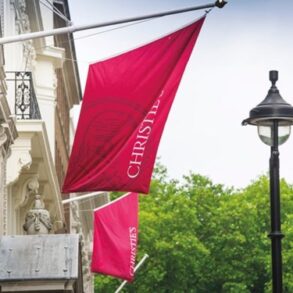
A West London art dealer has been sentenced to two years and six months in prison after selling artworks worth £140,000 to a suspected financier of Hizballah, a proscribed terrorist organisation.
Oghenochuko Ojiri, 53, admitted to eight counts of failing to make required disclosures under the Terrorism Act 2000.
He was sentenced at the Old Bailey on Friday, 6 June, following an investigation led by the Metropolitan Police’s Counter Terrorism Command.
The court heard that Ojiri knowingly sold artwork to Nazem Ahmad, a sanctioned Lebanese collector identified by UK and US authorities as a key financial backer of Hizballah.
Despite being aware of Ahmad’s designation and ongoing sanctions, Ojiri masked the transactions by falsifying invoice details and using aliases in his mobile communications.
“This prosecution, the first of its kind under specific terrorism financing legislation, sends a clear message to art dealers: we will pursue those who enable terrorist funding,” said Commander Dominic Murphy, head of the Met’s Counter Terrorism Command.
The investigation, which included cooperation with US Homeland Security, uncovered WhatsApp messages and browsing history confirming that Ojiri was fully aware of anti-money laundering regulations introduced in 2019 for the art market.
These regulations require art market participants to conduct due diligence and report any suspicious transactions.
Evidence showed that between October 2020 and December 2021, Ojiri facilitated multiple sales on Ahmad’s behalf, deliberately omitting Ahmad’s name from invoices and storing his contact under an alias. Officers from the National Terrorist Financial Investigation Unit (NTFIU) also recovered WhatsApp chats where Ojiri discussed the money laundering rules with colleagues.
Ojiri was arrested in April 2023, the same day the UK Government imposed new sanctions on Ahmad. Investigators later seized artwork linked to Ahmad — including pieces by Picasso and Andy Warhol — from UK-based warehouses. The nearly £1 million haul will be sold, with proceeds reinvested into UK security and legal agencies.
The Crown Prosecution Service (CPS) described Ojiri’s actions as deliberate and financially motivated. “He concealed the identity of the true buyer in order to build his gallery’s reputation,” said Bethan David, Head of the CPS Counter Terrorism Division.
HMRC Deputy Director of Economic Crime, Louise MacDonald, praised the conviction as a landmark case. “It demonstrates how coordinated enforcement can dismantle channels that terrorists use to move money.”
This post was originally published on this site be sure to check out more of their content





